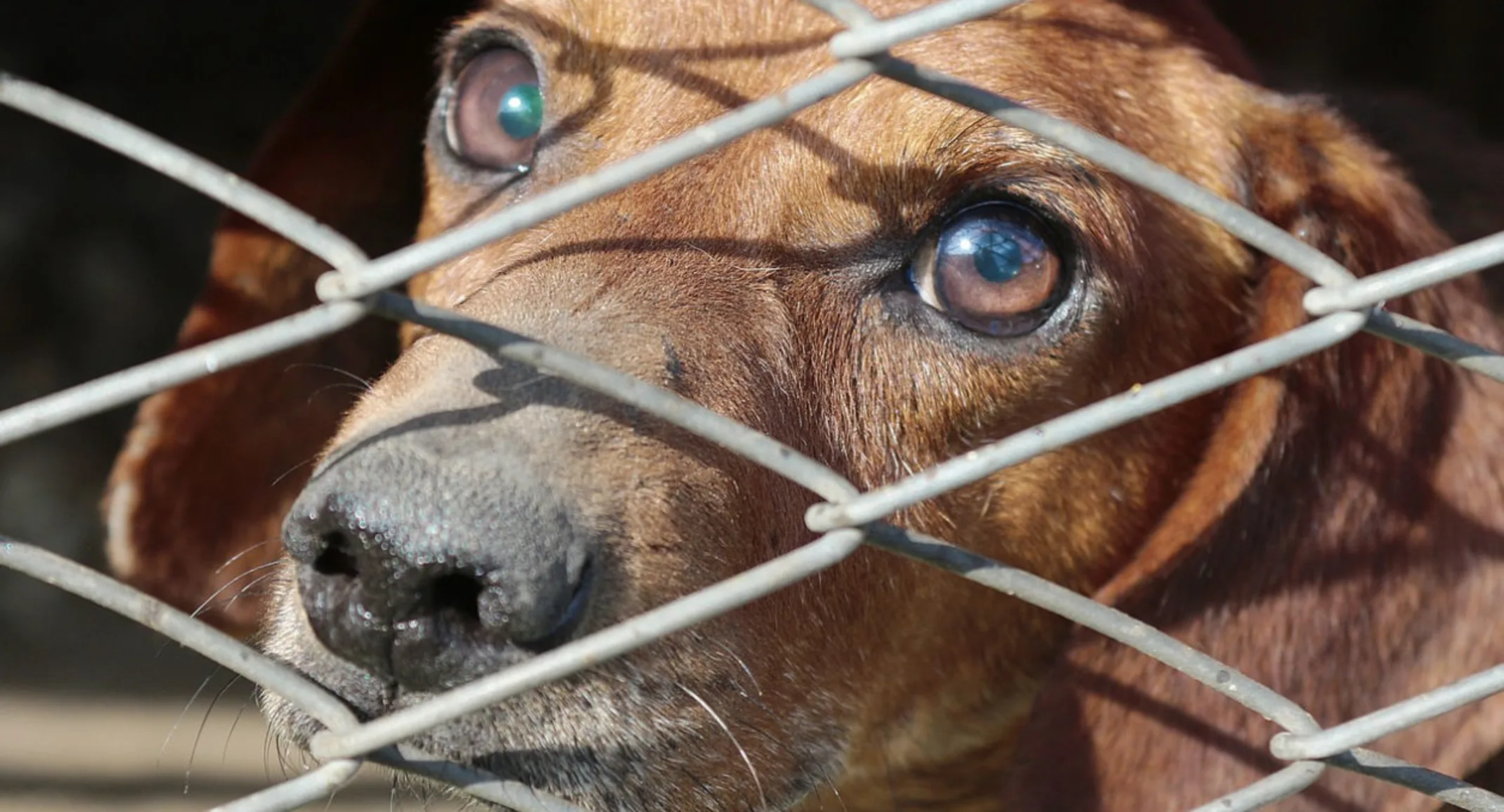Canine Noise Aversion FAQs
Dogs

Like humans, pets often startle when they hear a loud noise, but then quickly recover and go about their day. The two-thirds of dogs with noise aversion startle at specific sounds or events and a long-lasting anxiety or panic response is triggered. Summer is the worst season for many affected pets because of fireworks and thunderstorms, but this condition is treatable. Our Dove Mountain Veterinary team wants pet owners to learn how to recognize noise aversion and bring the problem to our attention, so we can work through management strategies that will help your pet cope. Here are our answers to frequently asked questions about canine noise aversion.
Question: What causes noise aversion in dogs?
Answer: Experts aren’t sure what causes noise aversion in some dogs, but breed, genetics, and general temperament likely play a role. Early life exposure may prevent or cause noise aversions, but how they develop or how to avoid them is not completely understood.
Q: What are the most common noise triggers for dogs?
A: Any noise, but most commonly thunderstorms and fireworks, can cause anxiety in a noise-averse dog. Others may include:
Construction noise
Car or motorcycle backfires
Sirens
Sporting events
Snowplows, garbage trucks, or lawnmowers
Doorbells
Vacuums
Appliances and electronics
Loud gatherings
Smoke detectors and other electronic beeps or alarms
Q: How do I recognize noise aversion in my dog?
A: Noise-averse dogs can show signs during a noise event that range from barely noticeable to destructive. The immediate response can last for hours after the noise has gone. Signs between dogs will vary, but individual dogs display the same patterns after hearing a trigger. Possible behaviors fall into three categories:
Subtle - Yawning, lip-licking, or lifting one leg
Passive - Panting, drooling, freezing, hiding, shaking, or cowering
Active - Escape attempts, destructive behavior, clinging to people, hypervigilance, vocalization, urinating or defecating
Q: Will my dog’s noise aversion improve over time?
A: Unfortunately, dogs will not become accustomed to their noise triggers the more they hear them. Instead, the brain connections creating the reaction become more robust and automatic, gradually worsening the problem. You won’t be able to soothe or distract your dog during their behavior episode, because their brain’s anxiety center hijacks rational thinking (e.g., like humans having a panic attack). Interventional treatments are necessary to break this cycle.
Q: Is noise aversion the same as thunderstorm phobia?
A: Thunderstorm phobia and noise aversion are technically separate conditions, although many noise-averse dogs will soon develop the other disease. Noise aversion refers specifically to noises, such as thunder, but storm phobias are also triggered by other events, including rain, lightning, or barometric pressure changes. Treatments are similar for each condition.
Q: What can I do during a noise event to help my dog?
A: Dogs reacting to noise generally do not respond well to human attempts to calm them through touch, distraction, or talking. Most dogs require home management strategies and pharmaceutical interventions to reduce the panic response.
Treatment strategies include:
Provide a safe, quiet, insulated space for pets to hide during a noisy event. For example, closets and bathtubs are favorite hiding places for many dogs.
Play soothing music or white noise to drown out the scary noise.
Place a pheromone diffuser in the room or spray a bandana and place it on your dog.
Use an anxiety wrap.
Try calming supplements and chews.
Give an anxiolytic drug before the noise event and repeat dosing as needed.
Each dog responds to anxiety medications differently, but you can expect your dog to relax and become slightly sleepy for a few hours. Dogs with a severe, destructive panic response benefit from stronger medications that offer a sedative effect and anxiolytic properties. We may need to test several drugs or medication combinations before finding the one that works best for your dog.
Q: What about long-term noise aversion treatment strategies?
A: Consistent drug therapies during noise events may help reduce your pet’s anxiety response or keep it from becoming stronger over time. Most dogs with noise aversion cannot be cured entirely, but consistent interventions will prevent their condition from affecting their quality of life and destroying their owner’s homes.
Dogs with many noise triggers, severe responses, or concurrent separation anxiety may benefit from daily, long-term anti-anxiety medication therapy. These are non-sedating medications, similar to human antidepressants that improve brain chemistry, and allow pets to stop panicking and learn a new, healthier response through specific training techniques. Dogs taking daily medication may still need situational medications during noise events.
Medications are effective only when given consistently and correctly, according to your veterinarian, and when combined with an appropriate training and behavioral modification program. Desensitization and counterconditioning, which change the negative fear response to a positive, reward-based response over time, may be effective in some pets. Working with a veterinary behaviorist or qualified dog trainer alongside our veterinary team will provide the best results for moderately or severely affected dogs.\
Noise aversion is a common problem that affects dogs’ quality of life and can predispose them to other anxiety disorders. Early and consistent interventions prescribed by our Dove Mountain Veterinary team are the best way to help your pet cope. Contact us to schedule a visit and consultation regarding your pet’s noise aversion before the next anticipated event to ensure you have an effective plan.
